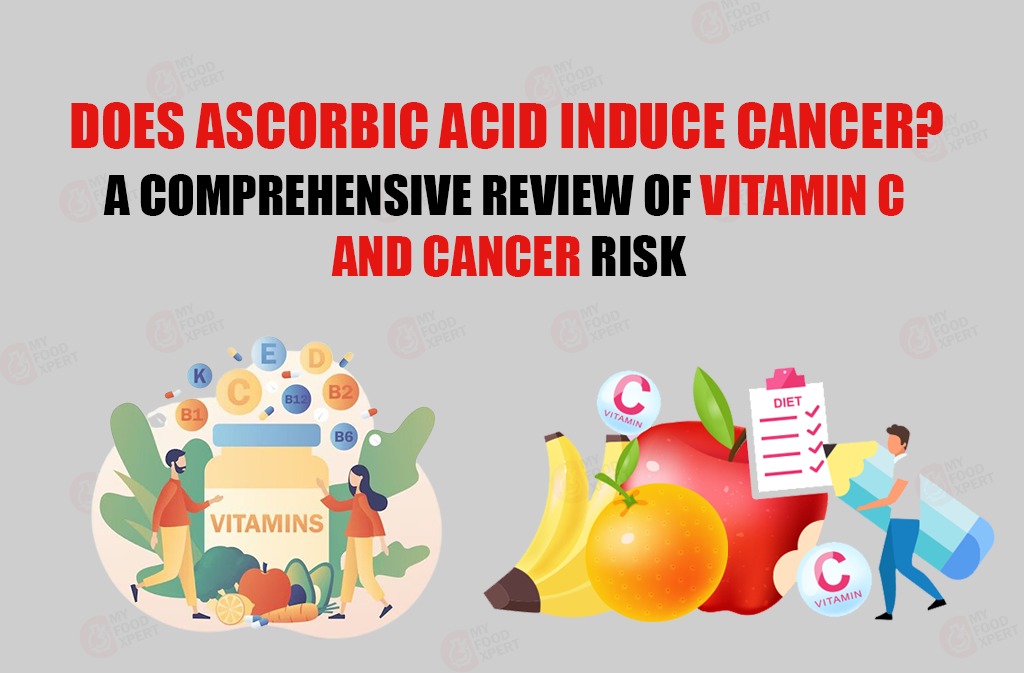
Ascorbic acid, otherwise referred to as vitamin C, is an essential dietary aspect with various health benefits, such as supporting the immune system, assisting with collagen formation, and acting as a strong antioxidant. However, the question of whether ascorbic acid may contribute to a cancer diagnosis has emerged in scientific discourse as well as public discourse. Lets explore the relationship between ascorbic acid and the risk of cancer in depth, investigating the evidence, possible mechanisms, and current guidelines.
What is Ascorbic acid?
Ascorbic acid is a water-soluble vitamin abundantly found in many fruits and vegetables, including but not limited to oranges, strawberries, kiwi, bell peppers, and broccoli. There are multiple roles for vitamin C in the body, including:
Collagen Formation: Vitamin C is a requirement of the synthesis and repair of collagen for skin elasticity, the integrity of blood vessels, and connective tissues.
Antioxidant Protection: Vitamin C also acts as an antioxidant, scavenging free radicals that can damage cells through oxidative damage.
Immune System Support: Furthermore, vitamin C plays an important role in supporting the immune system to fight infection and may help lessen the severity of common illnesses, such as the common cold.
The Antioxidant Hypothesis and Cancer Prevention
The antioxidant hypothesis assumes that antioxidants, like vitamin C, can protect cells from oxidative damage caused by free radicals. Cells that are damaged from oxidative damage caused by free radicals are known risk factors for the diagnosis of cancer because oxidative stress can induce mutations and contribute to the growth of tumors. Given this role of the antioxidant hypothesis, it has been suggested that a vitamin C intake might decrease cancer risk through oxidative stress.
Several epidemiological studies have demonstrated a relationship between higher vitamin C intake from dietary sources and a lower risk of different cancers, including:
Colorectal Cancer : Some evidence has demonstrated a protective role for vitamin C with colorectal cancer diagnoses, however, the evidence is not uniformly consistent.
Breast Cancer: Research has yielded inconsistent outcomes, with some indicating that sufficient vitamin C consumption may lower the risk, while others do not indicate significant relationships. These studies suggest the possible anti-cancer effect of vitamin C, even as the focus was primarily on dietary vitamin C while not exclusively on vitamin C supplements.
High-Dose Vitamin C and Cancer Risk: The Role of Vitamin C in Cancer
High-dose vitamin C has also been studied for potential clinical utilization, and associated benefits and risks, in the context of cancer. Here is the research and evidence of vitamin C in human cancer studies as it applies to cancer care:
Early Research and Hypothesis: In the 1970s, Dr. Pauling observed that high doses of vitamin C in terms of cancer prevention and treatment, vitamin C’s “general potential Study”. His hypothesis derived from the evidence that vitamin C was associated with approximately 15% improvement of immune function and had some potential, particularly in the area of reducing oxidative damage. His studies sparked interest and additional research, although his findings and assertions were somewhat confirmed in America and abroad as researchers engaged further efforts.
Clinical Trials : More recent suggested some potential outcomes related to cancer prevention and treatment outcomes. Some of those outcomes include:
Intravenous Vitamin C: Completion of studies to administer intravenous high-dose vitamin C discovered potential indirect benefit for reducing complication effects of chemotherapeutic treatment and patients reported improvements in quality-of-life outcomes. Studies involving patients with cancer and the administration of intravenous vitamin C are limited, and most of the studies to date are not conclusive.
Oral Supplements: Some findings indicated that a supplemental, high doses, administration of oral vitamin C has not demonstrated positive effect on risk prevention or treatment outcome. Some studies even suggested high doses of oral vitamin C is associated with some increased risk of undesirable side-effect or adverse outcomes.
Pro-Oxidant: Ascorbic acid potentially has pro-oxidant properties, regarding high-doses, meaning free radicals are formed because of the mechanism in the body. In conclusion, there is no strong evidence to suggest that ascorbic acid (vitamin C) directly causes cancer. The primary concern with high doses of vitamin C lies in the potential for pro-oxidant effects, but this area requires further research. For most individuals, consuming vitamin C through a balanced diet remains safe and beneficial.


